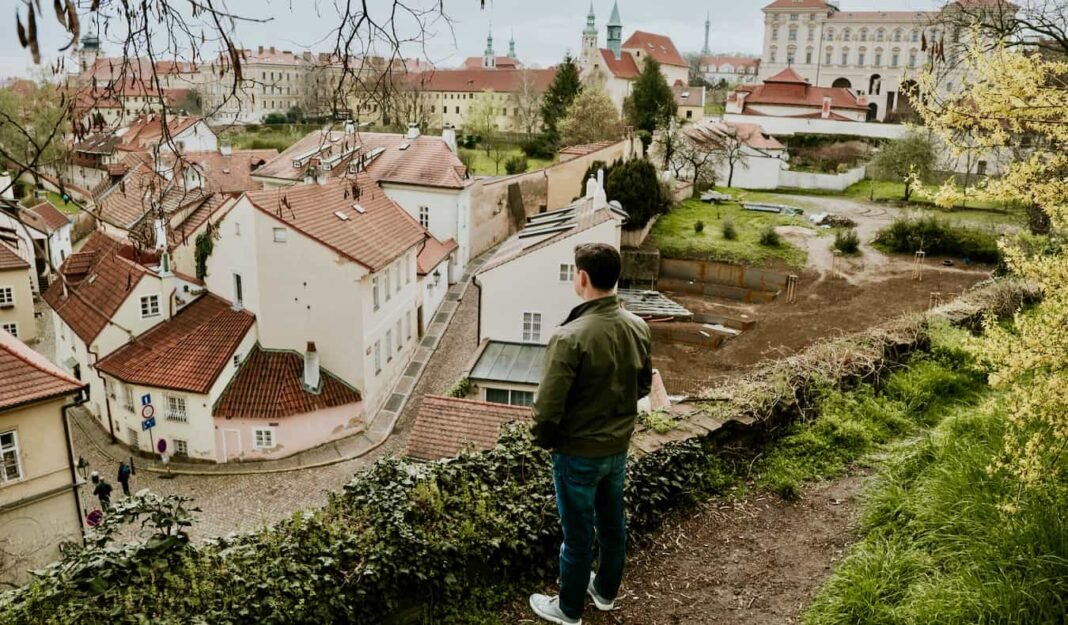Europe is a dream destination for digital nomads, offering a blend of rich history, diverse cultures, and vibrant cities with excellent infrastructure. If you’re planning to work remotely while exploring this fascinating continent, it’s important to be prepared. Here are some essential tips to make your digital nomad experience in Europe smooth and enjoyable.
1. Choose the Right Destinations
Popular Cities: Cities like Berlin, Barcelona, Lisbon, and Prague are well-known for their thriving digital nomad communities. They offer reliable internet, co-working spaces, and a high quality of life.
Emerging Spots: Consider less-traveled cities like Porto, Budapest, or Tallinn. These places often provide lower costs of living and unique local experiences while still offering the amenities you need.
Weather and Seasons: Europe has diverse climates. Southern cities like Barcelona and Lisbon offer milder winters, while northern cities like Berlin and Amsterdam can be quite cold. Plan your travels according to your weather preferences.
2. Find Reliable Wi-Fi
Co-Working Spaces: Many cities have numerous co-working spaces where you can find a reliable internet connection and a productive environment. Research local options before you arrive or use platforms like Coworker to find spaces that suit your needs.
Cafes and Libraries: Many cafes and libraries in Europe offer free Wi-Fi. Look for spots with a good atmosphere and ample power outlets. However, always have a backup plan in case the internet isn’t reliable.
Mobile Data: Consider getting a local SIM card with a data plan or an international data plan to ensure you have internet access when needed.
3. Understand Visa Requirements
Schengen Zone: The Schengen Area includes many European countries and allows for short stays of up to 90 days within a 180-day period. Ensure you understand the visa requirements for your nationality and the countries you plan to visit.
Digital Nomad Visas: Some European countries, like Estonia and Croatia, offer specific visas for digital nomads. These visas typically allow for longer stays and may have specific requirements related to income and remote work.
Extended Stays: If you plan to stay longer, you may need to apply for a different type of visa or residency permit. Research the specific requirements for the countries you want to stay in.
4. Budget and Cost of Living
Cost of Living: Europe offers a wide range of living costs. Western European cities like London and Paris are generally more expensive, while Eastern and Southern European cities tend to be more affordable.
Accommodation: Consider booking through platforms like Airbnb, Booking.com, or local rental agencies. For longer stays, you might find better deals on monthly rentals or serviced apartments.
Budgeting Tools: Use budgeting apps to keep track of your expenses and manage your finances. Apps like Revolut or TransferWise can also help with currency exchange and international transactions.
5. Health and Safety
Health Insurance: Ensure you have comprehensive travel insurance that covers health care, especially if you’re staying long-term. Many countries in Europe have high-quality health care systems, but insurance is essential for emergencies.
Safety: Europe is generally safe for travelers. However, always stay aware of your surroundings, especially in busy tourist areas. Keep important documents and valuables secure.
Local Emergency Numbers: Familiarize yourself with local emergency numbers and healthcare facilities. In most European countries, 112 is the emergency number for police, fire, and medical emergencies.
6. Cultural Adaptation
Language: While English is widely spoken in many European cities, learning a few basic phrases in the local language can enhance your experience and help you interact with locals.
Cultural Etiquette: Research local customs and etiquette to avoid any cultural faux pas. For example, it’s customary to greet people with a handshake in many European countries, and tipping practices can vary.
Local Events: Engage with local culture by attending events, festivals, and meetups. Many cities have vibrant cultural scenes and digital nomad communities that host regular gatherings.
7. Transportation and Connectivity
Public Transportation: Europe has an extensive public transportation network. Use trains, buses, and trams to get around cities and between destinations. Apps like Google Maps and Citymapper can help you navigate public transport.
Rail Passes: Consider getting a Eurail Pass if you plan to travel between multiple countries by train. This can be a cost-effective way to explore Europe’s diverse regions.
Cycling: Many European cities are bike-friendly and offer bike-sharing schemes. Renting a bike can be a great way to explore urban areas and enjoy the local scenery.
8. Community and Networking
Meetups and Events: Join digital nomad groups and attend networking events to connect with like-minded individuals. Websites like Meetup and Facebook Groups can help you find local events and communities.
Co-Working Communities: Many co-working spaces host social events, workshops, and networking opportunities. Engaging with these communities can help you build connections and make new friends.
Conclusion
Europe offers a wealth of opportunities for digital nomads, combining rich cultural experiences with modern amenities and infrastructure. By choosing the right destinations, understanding visa requirements, managing your budget, and staying connected, you can make the most of your time in this diverse continent. Embrace the adventure, explore new cities, and enjoy the flexibility that comes with being a digital nomad in Europe.



